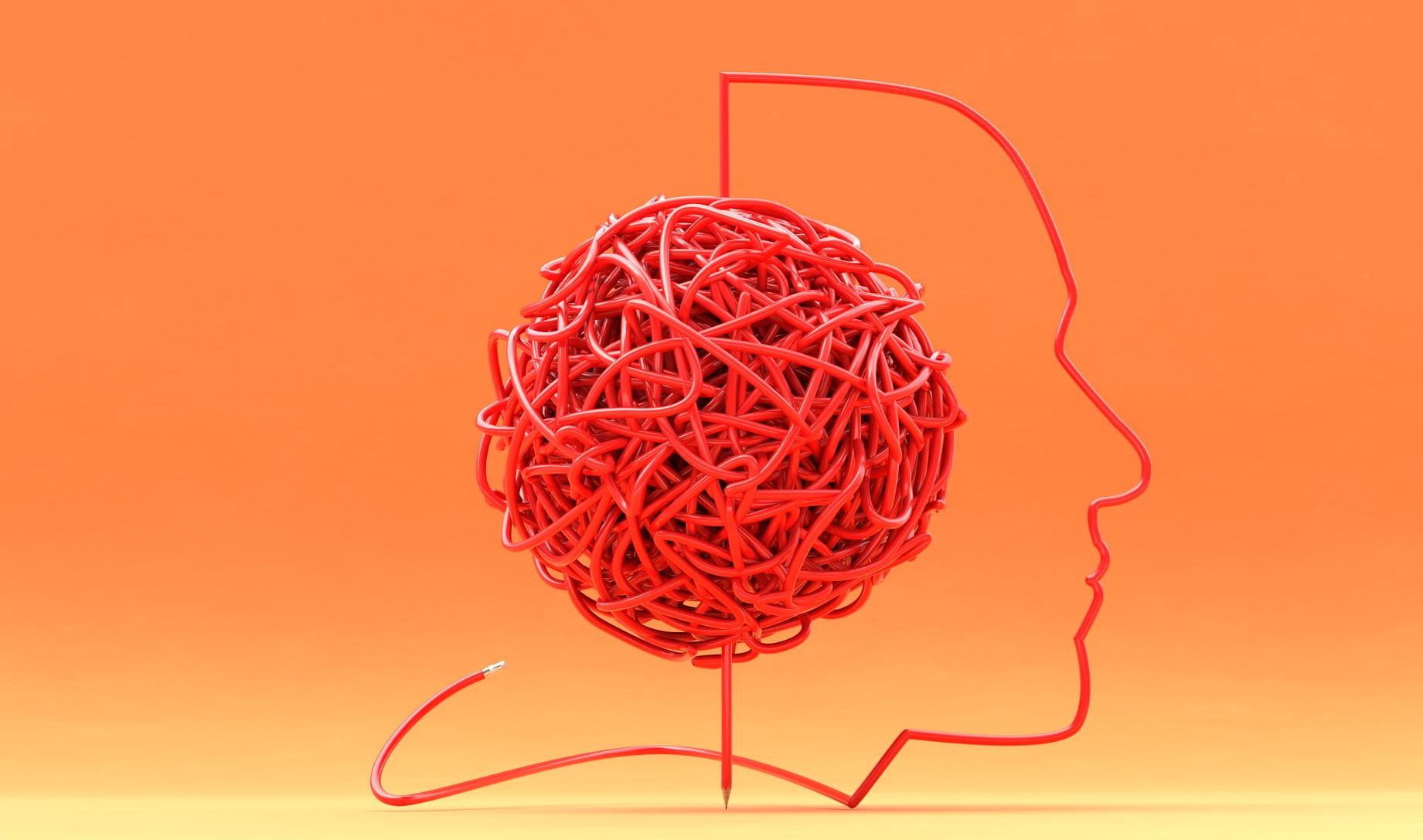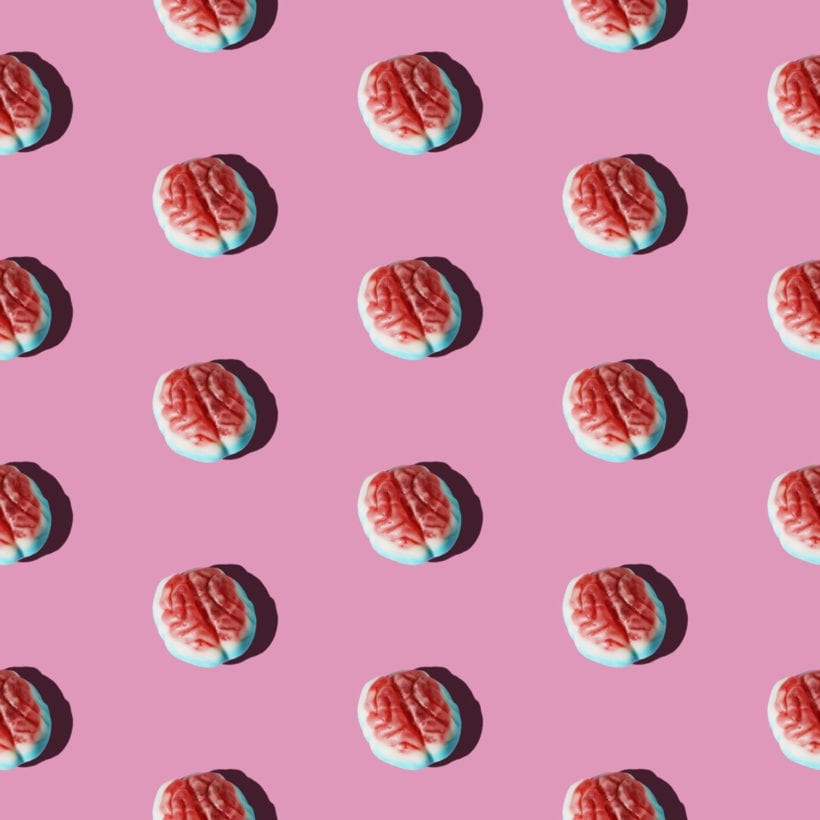Does your brain feel like it’s stuffed with cotton candy? Are you struggling to think straight, concentrate on tasks or make any headway with your to-do list? You could be suffering from brain fog. While it isn’t a medical term as such, the phrase brain fog is one that is popping up time and time again. This feeling of suboptimal functioning has only increased as a result of the stress-inducing global pandemic.
“Brain fog describes a situation where someone feels they have lost their edge, they can’t think clearly, their attention span diminishes and they may also find they become forgetful,” Phoebe Liebling, Nutritional Therapist at Motion Nutrition, explains. “Misplacing your keys or phone is one thing but it also impacts learning ability, information retention, goal setting and organizational skills making simple tasks feel challenging,” Dr. Ghazala Aziz-Scott, a specialist in integrative women’s health at the Marion Gluck Clinic, adds.
Its cause isn’t entirely understood and is often multifactorial. Firstly, stress can definitely play a part. “Being in a constant state of fight, flight or freeze as a response to a real or perceived threat means there is more cortisol in our bodies,” Life Coach Charlie Whalley explains. People suffering from high levels of cortisol often find they have issues with brain fog.
Secondly, for women, it can be related to female hormones too. “‘Brain fog’ can be caused by declining levels of the sex hormones, predominantly estrogen but also progesterone and testosterone,” Dr. Aziz-Scott notes. This is particularly common in pregnancy or menopause but can crop up at other times when hormones are out of line. Thirdly, it is often exacerbated by poor diet and lifestyle too.
Luckily, this often means it can be alleviated with some daily routine switches. Here, the experts share their tips for tackling brain fog.
Eat the rainbow

You’ve likely heard this one before but it is particularly important for brain health. “You want a diet rich in antioxidants and really good quality unsaturated fats. These are vital for neurological function,” Liebling says. The Mediterranean diet is a good food plan to abide by. “Its focus on whole grains, seeds, nuts, olive oil, a wide variety of vegetables and fruit and small quantities of quality protein and dairy will optimize your brain health,” Dr. Aziz-Scott advises.
Consider supplements
Brain boosting supplements can bolster a healthy diet, and there are a few, in particular, to look out for. First up, Omega 3 fatty acids. Dr. Aziz-Scott calls these “essential for brain health.” Found in oily fish such as salmon and sardines, for vegetarians, vegans or those not eating much fish, it’s worth supplementing an alternative. Dr. Aziz-Scott also recommends some other key nutrients: “Vitamins C and E are antioxidants that prevent oxidative stress that can damage brain cells in a process called neurodegeneration. Vitamin D calms brain inflammation and magnesium is known to support the nervous system.”
Move regularly
Remember to get up and get moving, even if it’s just walking. “If someone is very foggy or fatigued, I’d encourage them to do yoga or pilates to encourage gentle movement, strengthening and connection with their body. With normal energy levels, I would look at resistance and strength training and intense cardio or HIIT style training can be added if stress isn’t a concern,” Liebling recommends. “Prolonged cardio is a form of stress in itself so if this is a driver for brain fog don’t add that burden,” she notes.
Be wary of caffeine
When you’re feeling groggy, it makes sense to mainline coffee. However, it can be counterproductive in the long term for some people. “If you feel super energized immediately after but then crash and feel awful later that day, caffeine is too much for you,” Liebling says. Instead, try to cut back to one cup of coffee a day or switch to a lower-caffeine hot beverage like green tea.
Tap into your breath

Using our breath is the quickest and easiest way to reduce cortisol levels (aka stress) in the body. “We’re supposed to breath 6-8 breaths a minute but in the Western world we typically breathe 16 breaths a minute,” Whalley explains. “It’s telling our body we are in a constant stress state,” she adds. Whalley suggests trying the simple coherent breathing technique — a four-count in, four-count-out breath. “Research shows just 1 minute can eliminate cortisol.”
Tick things off your list
Overwhelming to-do lists only increase levels of brain fog. “During brain fog, we have a lot of open tasks. These open loops can play out in your mind as your brain mulls them over,” Whalley highlights. She recommends trying to complete one full thing a day so it is no longer taking up mental capacity. For those annoying tasks that can’t be completed, consider dividing your to-do lists into separate priority and non-priority lists using the important/urgent quadrant.
Get your hormone levels checked
If brain fog persists after making some lifestyle changes, it might be time to see professional help and get your hormone levels checked. If they are out of balance, there are treatments available. “Balancing hormone levels with hormone replacement therapy can help to improve psychological symptoms. Personalized bio-identical hormone replacement therapy offers the additional benefit of being tailored exactly to patients’ needs,” Dr. Aziz-Scott explains.
Strengthen your emotional resilience

Understanding yourself and your needs better can help prevent brain fog in the future. Whalley uses the metaphor of the emotional resilience cup: “Take time to write down what fills your cup, what empties your cup and what are the signs your cup is reaching empty.” For example, nature, good conversation, exercise, alone time or a healthy meal may fill your cup while screen time, lack of sleep or intense working patterns may empty it. Brain fog is one of the key signs that your ‘cup’ is empty. With this framework in place, you can spot earlier when you might be reaching a state where brain fog is likely and subsequently put measures in place to stop it in its tracks.
We only recommend products we have independently researched, tested, and loved. If you purchase a product found through our links, Sunday Edit may earn an affiliate commission.







